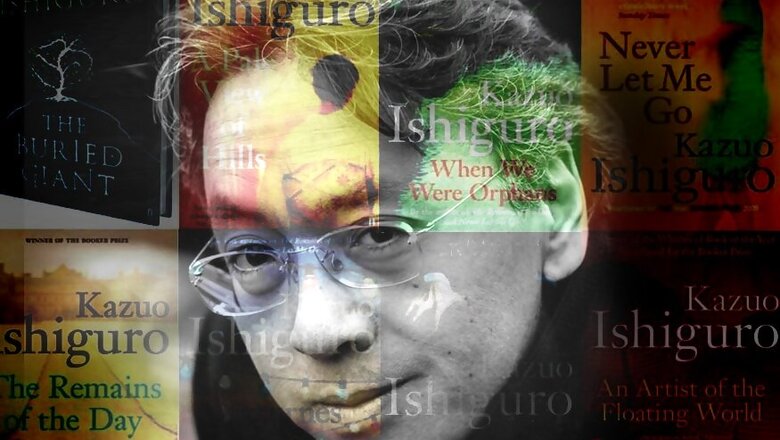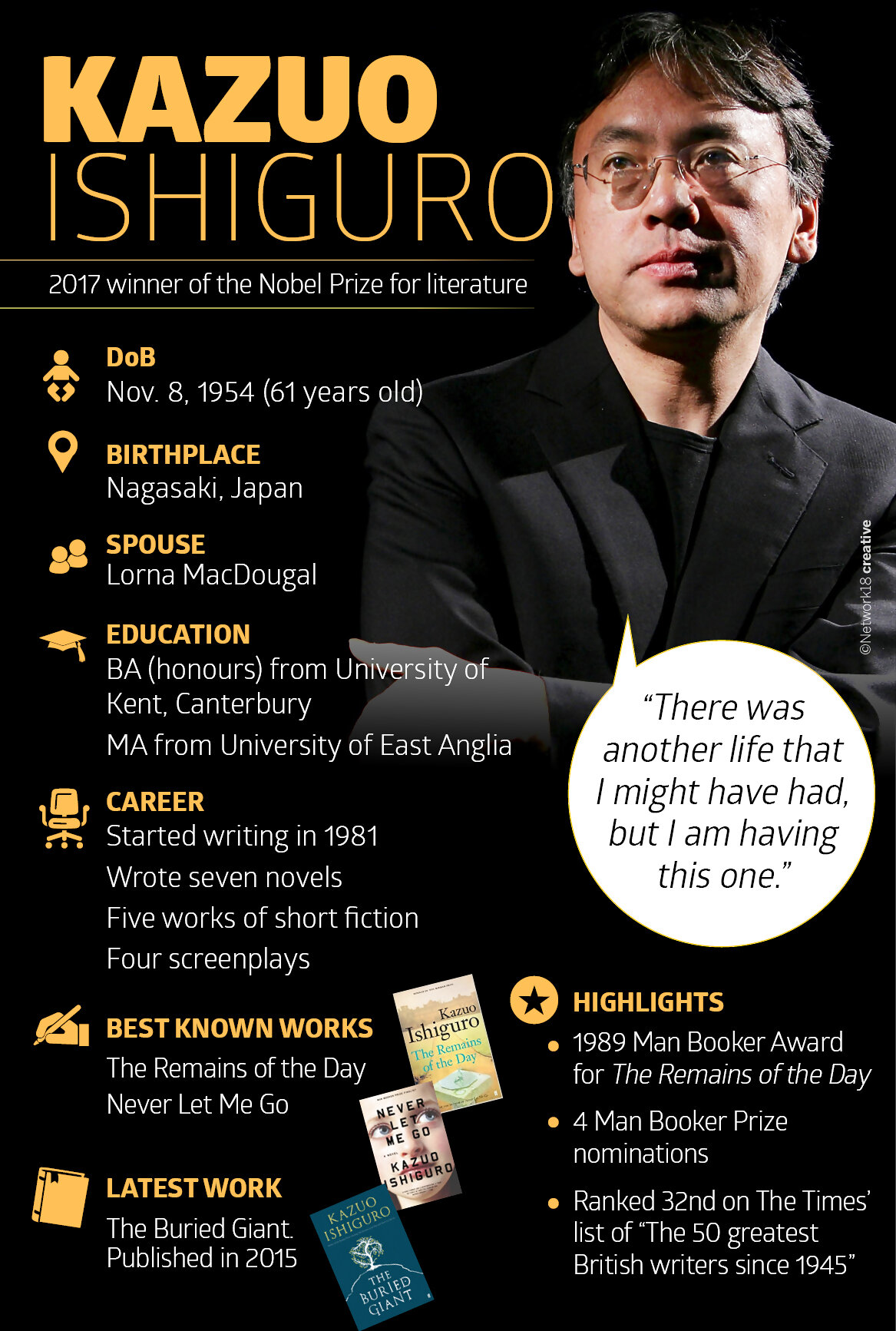
views
Stockholm: Kazuo Ishiguro, the British author of "The Remains of the Day", won the Nobel Prize for Literature on Thursday for a run of "exquisite" novels that the award body said mixed Franz Kafka with Jane Austen.
The 62-year-old writer called the news "flabbergastingly flattering" and said he initially thought it was a hoax. He told reporters his wife had rushed home from the hairdressers after seeing reports on her phone.
"It comes at a time when the world is uncertain about its values, its leadership and its safety. I just hope that my receiving this huge honour will, even in a small way, encourage the forces for good," Ishiguro said.
The award of the 9-million-crown ($1.1-million) prize marks a return to a more mainstream interpretation of literature a year after it went to singer-songwriter Bob Dylan.
Ishiguro is the first Briton to win the world's most prestigious literary award in a decade, since Doris Lessing's recognition in 2007.
He said he was sitting in the kitchen when his agents called and let him listen in to the Nobel announcement live over the phone, without knowing he would win.
"I thought it was a hoax, in this time of fake news. So I asked them to check up," he said at his north London home.

"Eventually a very nice lady called from Sweden and asked me first of all if I would accept it ... I was surprised at how low-key they were, it was like they were inviting me to some kind of party."
His best-known work, "The Remains of the Day", won the 1989 Man Booker Prize and became an Oscar-nominated movie starring Anthony Hopkins as a fastidious and repressed butler in postwar Britain.
"GREAT EMOTIONAL FORCE"
"He is an exquisite novelist. I would say if you mix Jane Austen and Franz Kafka you get Ishiguro in a nutshell," Sara Danius, permanent secretary of the Swedish Academy, which chooses the literature winner, told Reuters.
The Academy hailed Ishiguro's ability to reveal "the abyss beneath our illusory sense of connection with the world ... in novels of great emotional force" that touch on memory, time and self-delusion.
Ishiguro's latest novel, "The Buried Giant", in which an elderly couple go on a road trip through an Arthurian England populated by ogres and dragons, "explores ... how memory relates to oblivion, history to the present, and fantasy to reality," the Academy said.
He told reporters he was currently in discussions to work on a graphic novel.
Ishiguro was born in Japan and raised in Britain.
“I've always said throughout my career that although I've grown up in this country and I'm educated in this country, that a large part of my way of looking at the world, my artistic approach, is Japanese, because I was brought up by Japanese parents, speaking in Japanese," he said on Thursday.
Ishiguro has waded into British politics during his career, calling a rise in hostility towards immigrants after the Brexit vote "a fight over the very soul of Britain".
He takes his place beside past winners including Alexander Solzhenitsyn, Toni Morrison, Samuel Beckett and Ernest Hemingway.
The prize is named after dynamite inventor Alfred Nobel and has been awarded since 1901 for achievements in science, literature and peace in accordance with his will.



















Comments
0 comment